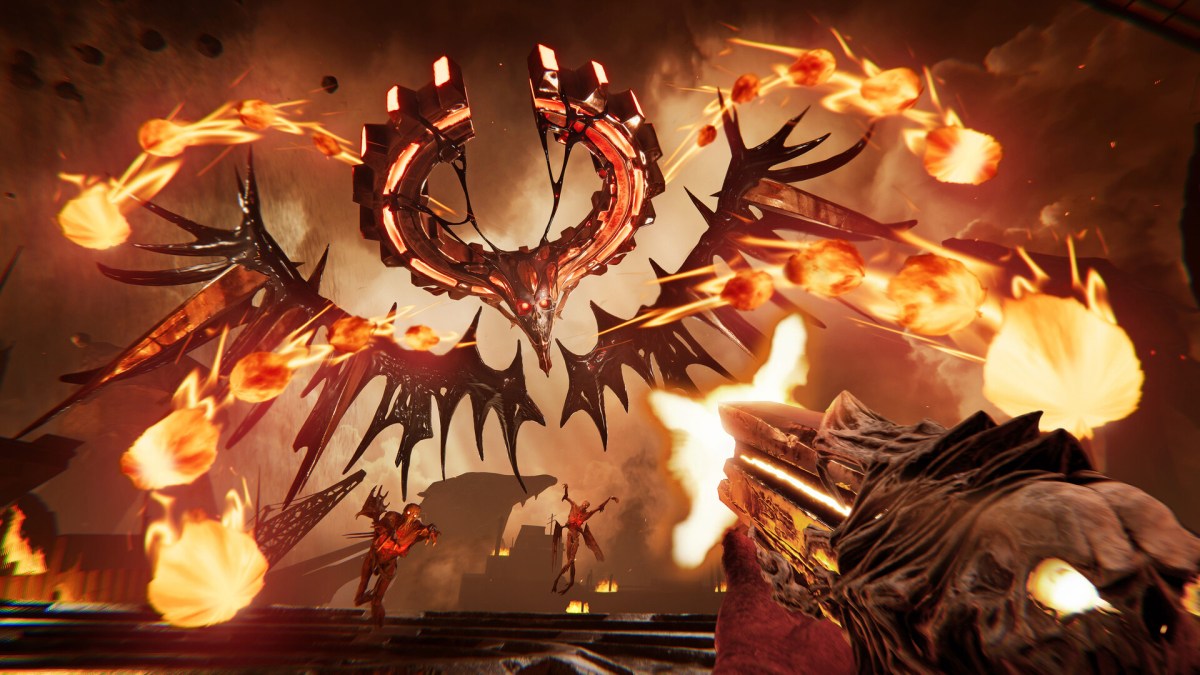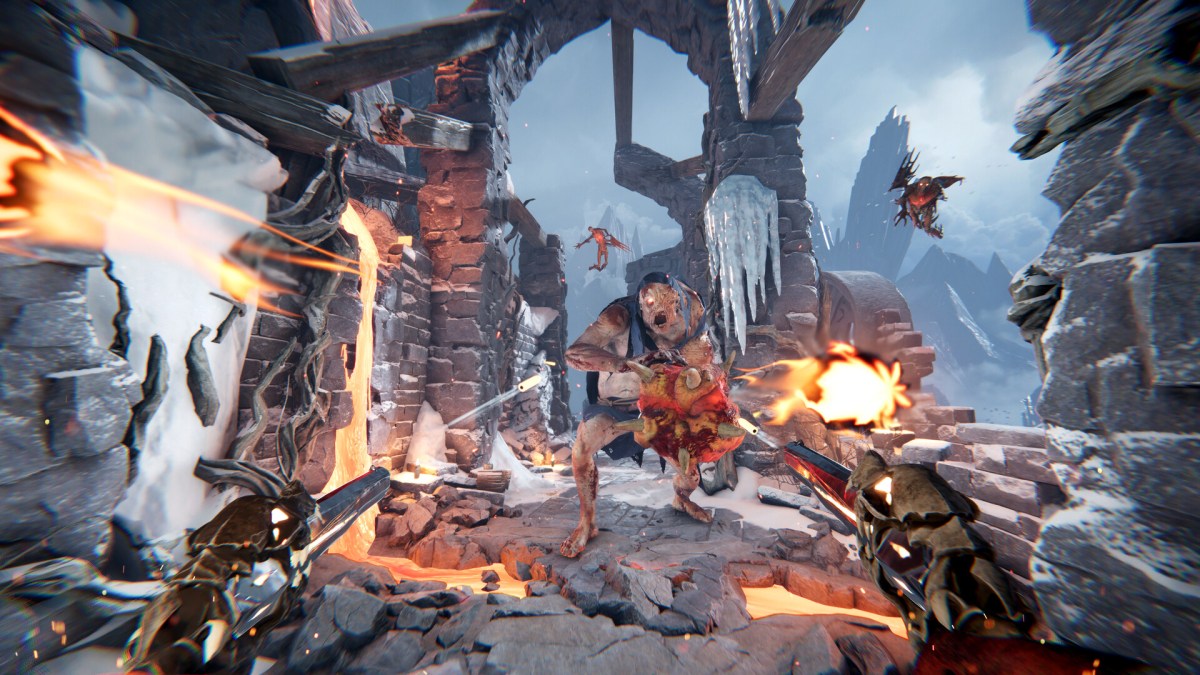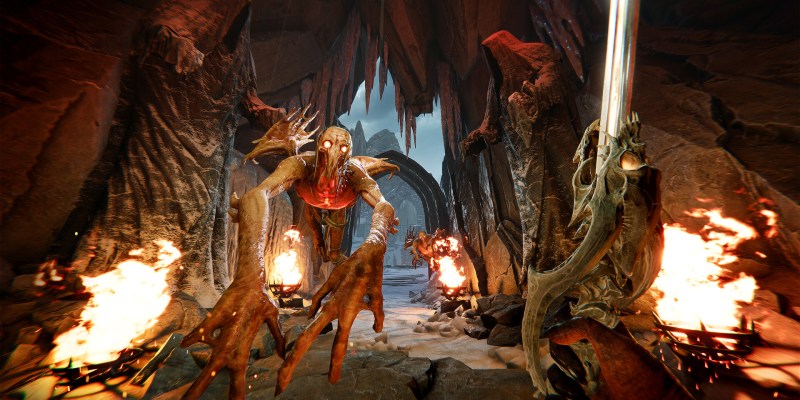It’s hard to properly describe a first playthrough of a FromSoftware Souls game and why Metal: Hellsinger, a game one-tenth the size of a standard Souls, manages to recapture even some of that magic. It has few of the traits FromSoft titles are now famous for. There are none of the seemingly endless mysteries of the worlds to uncover, the sense of agency given over how, where, and when you tackle the many challenges, and the sharply tuned satisfying combat against beasts both monstrous and all too human.
Metal: Hellsinger is a four-hour, tightly designed rhythm shooter with a barebones plot, far less enemy and weapon variety, and almost no mystery to speak of. Your job is to murder hordes of demons and angels to the beat of some amazing music, with the game’s narrative acting as a framework for that task.
But it is that simplicity that does much of the heavy lifting. In Elden Ring, the sense of wonder at a new area or grand boss battle can be a driving force behind your exploration. In Metal: Hellsinger, it’s the rush of building your score multiplier so you can hear more of the soundtrack. Rather than the joy of exploring some vast landscape, the expectation that the next song could be as good as the last is what pushes you forward.

Somehow, Two Feathers, the composer duo for Metal: Hellsinger, and the array of metal household names they worked with never stop pushing the envelope, putting out track after quality track. Every time I loaded into a level, my first desire wasn’t to see what new foe I’d face or weapon I’d use. It was discovering how much I’d strain my neck banging my head to the music.
All this takes nothing away from a FromSoftware soundtrack. Each one offers some of the most complex, emotionally charged, and effective music in the industry, but few of the tracks go quite as hard as any of the heavy metal in Hellsinger. Not even the best boss music from Dark Souls is as immediately gratifying as some of the lesser tracks in the rhythm shooter. As with the rest of the game, that makes sense, as even one lower-quality piece spoils the whole experience.
It wasn’t just the soundtrack that gave me shivers, either. Like in a classic Souls experience, there is immeasurable satisfaction in the core mechanics of Metal: Hellsinger. “Slaying to the beat,” as the developers at The Outsiders call it, was at the heart of the game’s design. You’ll start by shooting with the beat, but the sonic and visual feedback when you kill a demon to the drumline is something else. I would replay levels not because I wanted to hear the music again but because I wanted to experience that visceral sensation of exploding a whole room of demons with a single, well-timed shotgun blast.

Metal: Hellsinger is a shooter, so using the guns and other weaponry on offer has to be almost as enjoyable as the music. Most of them are, though the final two weapons — a pair of demon raven boomerangs and a crossbow grenade launcher — are more fun than they are effective. I enjoyed using the dual revolvers and the shotgun far more, though the boomerang’s ultimate ability to summon a swarm of demon birds to eviscerate enemies is quite a thrill.
Despite the gulf of weapon diversity between a Dark Souls or an Elden Ring and Metal: Hellsinger, both series also share that sense of discovery when it comes to the arms you use. There are so few options in the smaller title that each has to be entirely unique, and sometimes unique fails to translate into usable when compared against the tried and true. Despite the sometimes lackluster showing, the period of experimentation with a new toy is still incredibly enjoyable simply for how it changes the way you play. The difference between Souls and Metal: Hellsinger is, in the former, you usually need certain stats to use the most interesting weapons. In the latter, you’re only limited by how you decide to play.
Taken as a whole — the music, the satisfying shooter gameplay, the varied and unique weaponry, the barebones but enjoyable story — Metal: Hellsinger offers something few other games can boast: an experience that rivals an initial playthrough of a Souls game. Does it have the staying power of one? Not really, even with the leaderboards, which don’t have any straight comparison in any of FromSoftware’s titles. Still, after emptying hell of every demon I could find, I wanted something I so rarely ask for again: the ability to do it all again for the first time.
